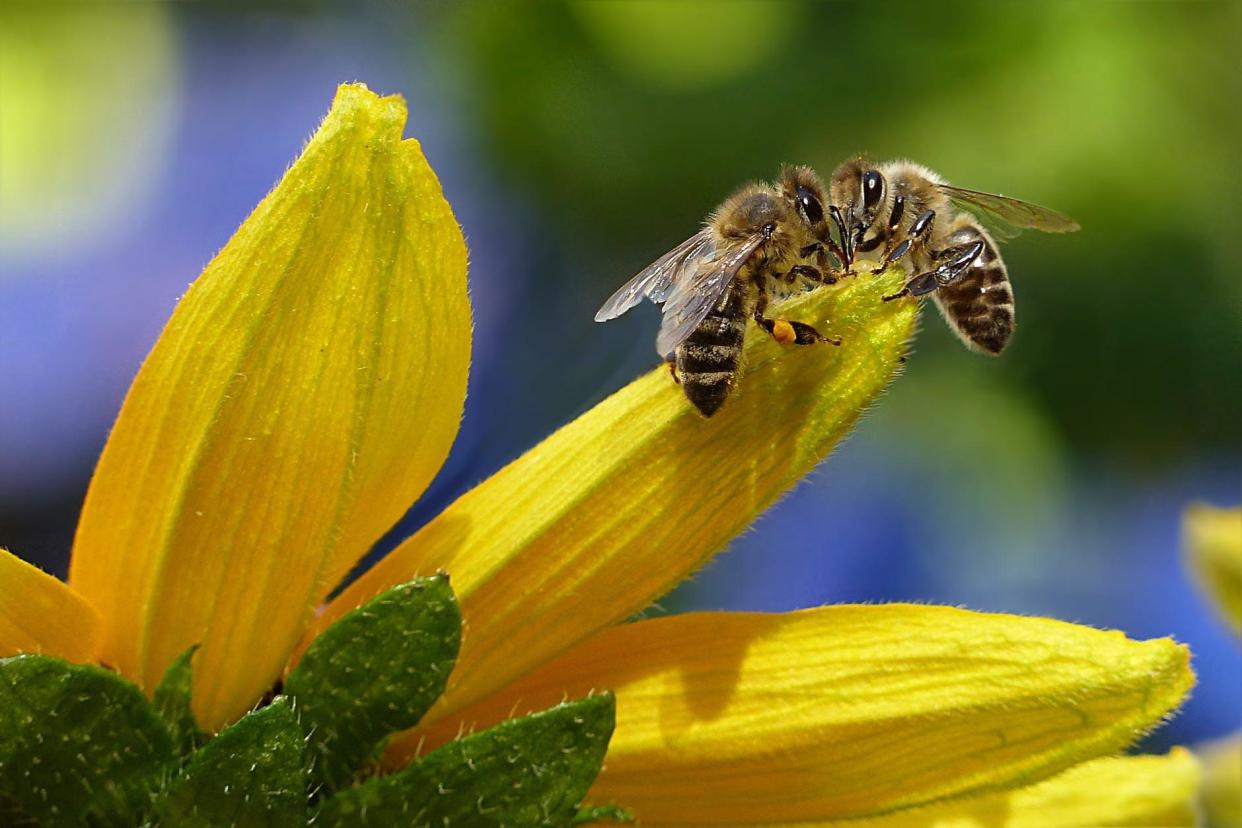Campbell Vaughn: Thank a bumblebee for that tomato by joining the Great Pollinator Census

The Clemson Tigers may be my team's rival (Go Dawgs!), but their university has earned a little love from yours truly. Our neighbors to the northeast are joining my favorite citizen scientist project of the year, the Great Georgia Pollinator Census. Clemson University is now working with UGA Extension to get as much pollinator information us regular folks can gather on Aug. 19 - 20 this year.
With this being our fourth year of counting pollinators, we are finally gathering some real data.
The number of people counting went from 4,700 in 2019 to 5,950 in 2021.
In three years, our surveyors have counted 324,000 insect visits.
Classes from 75 Georgia schools participated in last years count.
With South Carolina joining in this year, I know a bunch more kids are going to get involved.
Birds, bees, breeze help make seeds
What is pollination and why is it important? The simple explanation for pollination is the act of transferring pollen from the male part of the plant (anther) to the female part of the plant (stigma), so a seed can be produced. Seeds make new plants which is the goal of every living organism. Flowers are the tools that make this happen. Pollen has to move from the same species of one plant to another plant to produce the seeds. Pollination can be done by wind (pine trees or corn), water, birds, bats and a variety of insects like moths, butterflies, wasp, flies and bees. Animals that pollinate are referred to as pollinators.
Campbell Vaughn: Skills in agriculture among things shared on mission trip to Jamaica
More: Campbell Vaughn: This warm season grass is really a weed – be careful planting it
When a pollinator happens past a plant flower for feeding or lounging, the tiny pollen particles stick to the insect and when the animal moves to the next plant, so does the pollen. With lots of flowers and lots of insects traveling great distances, it is a numbers game on which plants get pollinated.
About 30% of all food production is directly related to pollinators. One out of every third bite on your plate, we need to thank a pollinator. And we are trying our best to get as much information we can gather so we can find best practices to create and maintain existing pollinator habitat.
Fifteen minutes is all you need
The cool thing about this project is you don’t have to be an entomologist to participate.
Here is how to participate. Go to the website GGAPC.org and watch the 3-minute video. Sign up for the Georgia county where you will be observing. Print out the census form and get ready for Aug. 19 and 20. With the form in hand, you will find a plant or group of bloomers that are buzzing with insects. For 15 minutes you will look for the particular types of insects listed on the form. The best times of day for observing lots of these flower lovers are about 11:00 AM to 6:30 PM.
You don’t have to differentiate between an Eastern Tiger Swallowtail and a Polydamas Swallowtail, you will just need to mark “butterfly” on the line. The same goes for other categories like wasp, flies and bees. There is a fantastic identification guide on the GGAPC.org website to help.
The census is designed for anyone in Georgia and South Carolina to participate. There are all kinds of good information on the website that dives deeper into pollinators and the census, so check it out. There is also a Georgia Pollinator Census Facebook page that is full of great pictures and information. You can count more than once too.
Now get out and do some counting. Bring a friend too.
This article originally appeared on Augusta Chronicle: Campbell Vaughn: Counting all pollinators! GA census needs volunteers

